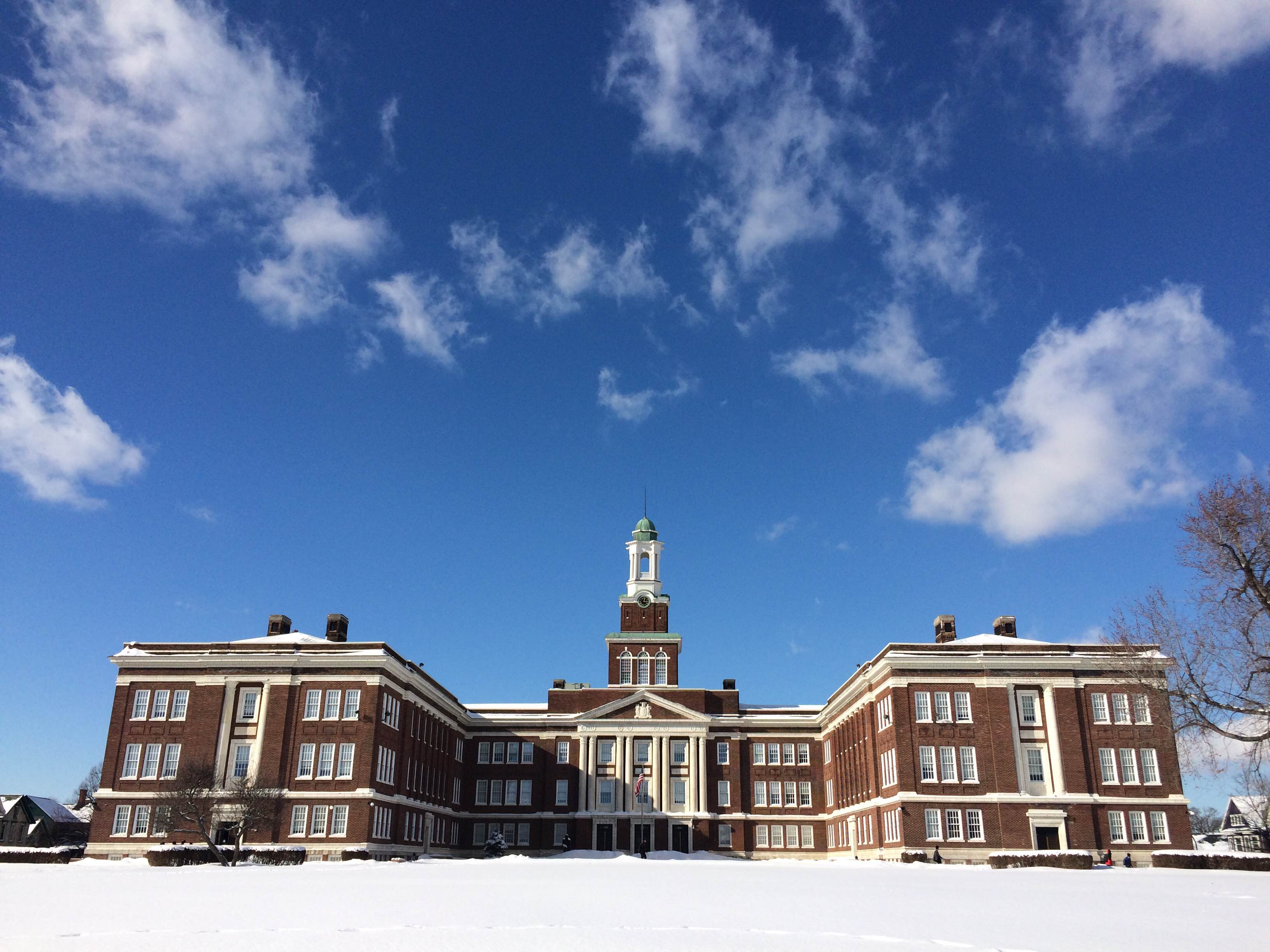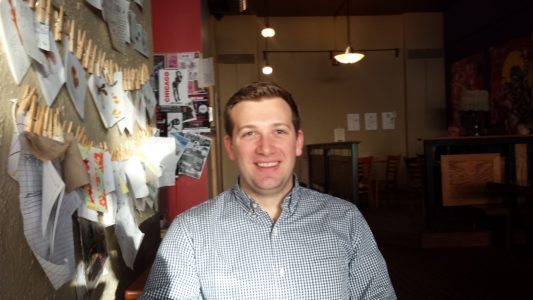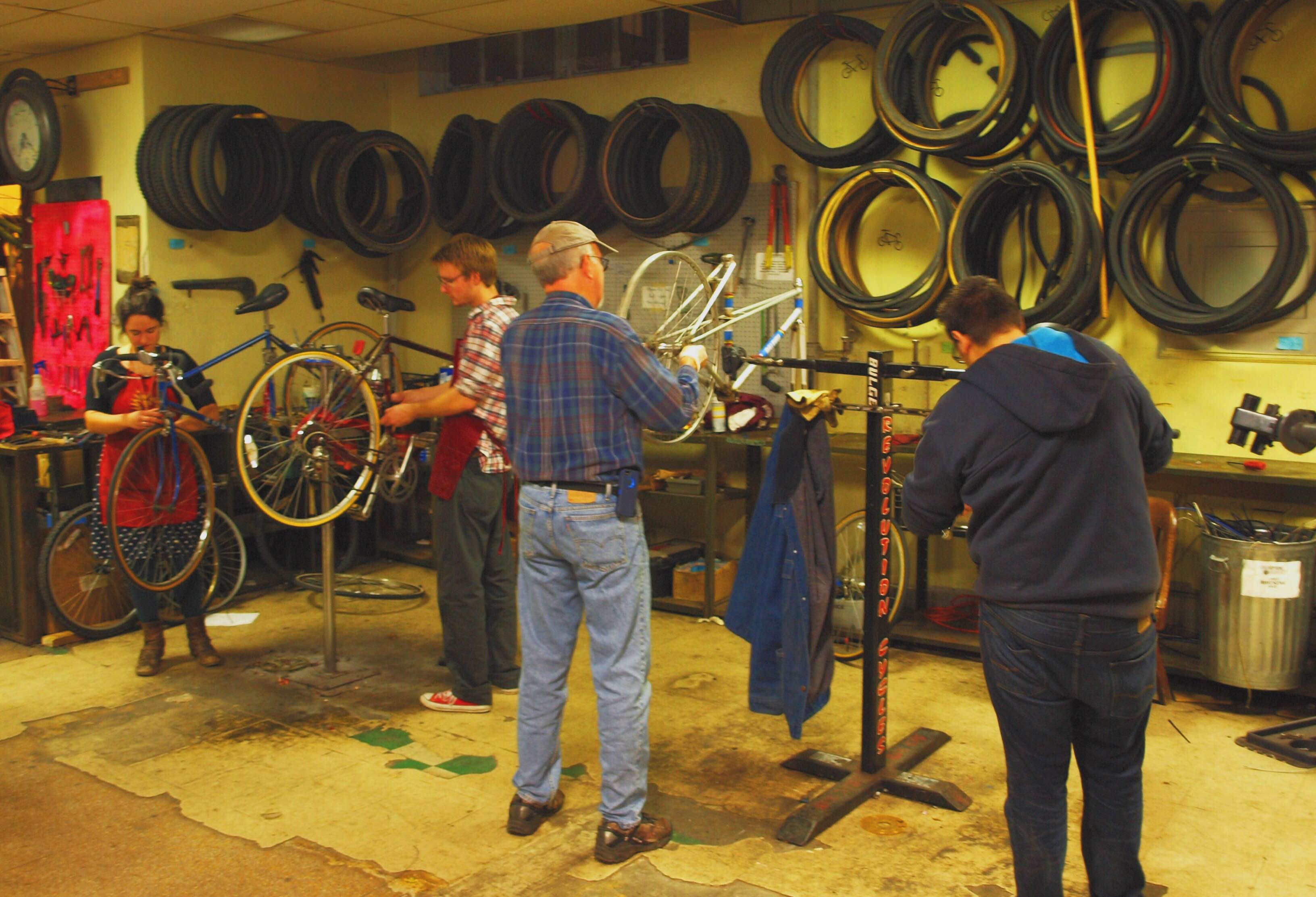Buffalo ReformEd is a non-profit organization whose mission is to effect change in the Buffalo Public School system. We sat down one of their employees, Jason Zwara, Executive Director, to talk about just what in the world is going on inside the district. When we talk about it taking ten years to turn this district around, it’s hard not to highlight a lot of the negatives, but with more eyes and awareness of the situation, we believe more change is possible.
Katie Campos, whom we interviewed previously about Teach for America in Buffalo, started ReformEd in 2011. It started as a charter advocacy organization. They wanted to advocate for a level playing field for charter schools in the city. That quickly changed and expanded to covering the entire Buffalo Public Education System, both public schools and charters.
Jason Zwara is an attorney with the organization, leading its research efforts. He described the way Buffalo ReformEd does its work by pulling together stakeholder groups in the community. Those include parents, alternative teacher groups, business leaders, non-profits, political leaders, faith-based communities, and institutions of higher education. We do research on what is working in other cities, as well as reading deep into the numbers coming out of the annual reports the schools must submit to the state. Finally, we present the findings of our research in the form of proposals for changes in policy to board members and the district’s administrators.
So let’s just get right into it. What is the biggest thing holding back our school system?
“The bureaucracy. A lot of people think that our city’s high level of poverty is ultimately to blame for the low rate of graduation. We don’t deny that poverty plays a large role in the lack of student achievement. Let’s say you’re being raised in poverty. Your parents, your parent, or your grandparent raising you may have gone through the bottom half of the school system before you. Now you’re moving through the same bottom half of the school system. Okay. We’ve identified that that problem. It’s a problem, but it’s solvable, and it’s not a reason that children should fail. You need supports built into your educational journey in order to help you overcome the obstacles your poverty present.
“You need early childhood education, social services, health services, but there simply aren’t enough providers of these services in the neighborhoods that need them most. It’s crazy to think that the schools should provide all of that for every child, but it is not crazy to expect the giant bureaucracy of the school district to work with the city and be able to align these services for you in your neighborhood where you need it the most.”
So when examining the myriad of problems in the school district, poverty is one of them, but it’s the bureaucracy receiving an F in supporting its poor students that is contributing to the pitiful graduation numbers.
What challenge is ReformEd dealing with right now?
“The ‘out of time schools.'”
Bennett, MLK, East, Lafayette
“They’ve gone through a turnaround process, made no improvements, no changes to how the school operates and serves its students. So the state is saying ‘You either need to turn into a charter or you need to turn over your school to the state.’
Another two to four schools will be named next year, a mix of high schools and elementary schools.”
How does that turnaround process work?
“These schools received three-year grants up to $6 million in order to facilitate their transition from low to high-performing institutions. Unfortunately, most of the schools that received that money haven’t made any improvements. They don’t change their policies, their staff, anything. Burgard, Riverside, and Harvey Austin are among the names likely to be in the same position as the aforementioned schools next year.
However some schools did turn themselves around. International School 45 actually made changes, and now they show significant improvement. Waterfront also improved slightly.
There’s a real opportunity for the next round of these “out of time” schools for parents to come together and have a voice in order to say YES or NO to plans for those schools. ReformEd is trying to start organizing those parents in order to educate them and get them to plan on how to tackle that when the time comes.”
What we often hear in our discussions around town is this: How do you expect schools like Lafayette to succeed when so many of its students are part of the 6,000 immigrants and refugees who have arrived in Erie County in the past 5 years? Aside from not knowing English, some of them are illiterate in their native languages.
Ready to bang your head against the wall? Buffalo has not figured this out. The International Schools in New York City have. In those international schools, they graduate 66% of their students in four years, 78% in six years, as compared to 26% and 37% respectively at Lafayette, and their schools have the same student body diversity. Their graduation standards are not lower, their school years and school days are not longer than Lafayette’s. They worked hard, and adapted, instead of thinking the same methods can work no matter who is sitting in a classroom. Is your forehead bruised yet? If not, read more about here from the Buffalo News.
But not ALL of the schools are failing. What schools have continuously done well?
“Honestly, most of the schools that are still performing well are the criterion-based high schools. City Honors, Hutch Tech, Emerson on Chippewa, Da Vinci, and others. Students that attend those schools are graduating, and they’re headed off to college.”
So how do you get into one of these schools?
“Well, the 8th grader has to take a test at that school on a specific day, and you have to go downtown to fill out a paper in person. The criterion-based schools do this earlier than the open enrollment schools, and they of course have a limited number of seats.
So you can understand why the District Parent Coordinating Council filed a complaint with the US Department of Educations’s office of Civil Rights because the enrollment process excludes so many people – those who do not have involved parents to guide them through the application process, or those children and parents who are unaware of the procedures at all. Children who are raised by parents who were themselves uneducated, are being put at a disadvantage.
So that is one of the projects ReformEd is taking on – a single, centralized, district application process. At the very least, you can get all the enrollment info for criterion schools, public schools, charter schools, all in one central location. Instead of a different application, different test, and different set of paperwork for every school you want to apply to. A lot of other urban districts use it, Denver, Boston, sub districts in NYC, yet Buffalo does not.”
“We work on expanding access to choice. We want parents to be more educated about the options that exist. We’ve developed an interactive map that shows enrollment numbers, performance, and special programs available.
“Before charters came into town, you either already had a leg up in getting into a high-performing criterion school, you paid for a private school, you moved your family into the suburbs for better schools, or you were stuck with whatever school into which your were dumped by the district. So how can you argue against charters when that’s your choice system?”
So that’s it for the negative coverage. Can you tell us about any wins you’ve had that may contribute to some upward momentum?
“Our organization is still pretty young, but one of our biggest wins is that we have a lot more people paying attention and focused on what’s going on.
“When we got started, there was one correspondent with the Buffalo News covering Education. Now they have four or five. WBFO has Eileen Buckley, a full time education reporter. There’s more attention from TV stations. Alternative magazines like The Public and Artvoice are focusing on education. We’d like to take some credit for that because we were pushing its importance from the start.
“We also did research and work initially that led to people new people running for the board. Traditionally the board was loaded with retirees from the system who were against any sort of change to the system they knew so well. Other perennial members were those using it as a political stepping stone without much interest in the outcome of their work. Now, you’ve got accomplished businessmen, former police officers, former leaders of non-profits that are on the board or running for positions on the board because they realize how important it is for the city.”
As schools make attempts to lift themselves up, what would you change to facilitate those changes?
“Access to choice and autonomy for traditional district schools needs to go hand in hand. School leadership teams need to have a say, and ideally full authority over, hiring and assigning teachers, extending the school day and school year, allocating support resources, providing specialized programs, etc. Right now, through district policies and union contract provisions, decisions are either made at the classroom level or the district level. Principals and school leadership teams have little to no ability to actually shape their school, beyond building a school culture. This is one reason why the four ‘out of time’ schools present such an interesting opportunity: it could provide a chance for some of these chronically low performing schools to have a lot more control and autonomy over how the school meets the needs of its students.”
-KH





